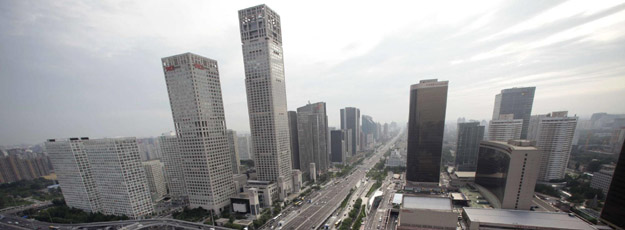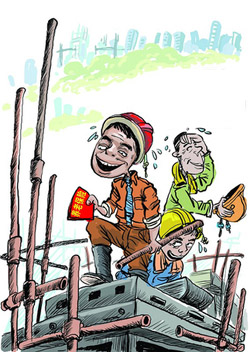Specials
Urbanizing China
(chinadaily.com.cn)
Updated: 2010-08-06 10:33
 |
Large Medium Small |
|
 |
Editor's Note: China's accelerated urbanization has been a powerhouse of its booming economy and offers its vast rural people a convenient path to prosperity. The country's sweeping western inlands, lagging behind the rest of the country, still wait for modernization on a much larger scale that will infinitely change the country for the better.
However, China's urbanization has also induced a seismic sociological shift. More and more young migrant workers want but can't afford to stay in overcrowded cities, brewing ticklish social tension over widening wealth gap. Adding to the cacophony are humming bulldozers demolishing old neighborhoods that could have been cultural emblems.
News Rerun: China leads the world in urbanization
By the end of 2009, China's urban population reached 620 million, the world's largest, which is twice that of the entire population of the United States and one quarter more than the total population of 27 countries of the European Union.
|
 |
China, already undergoing rapid urbanization, still has a large number of backward mainland cities. Chinese urbanization is accelerating and resulting in a new round of consumption and construction. China's economy will still be in a golden period of development for the next 10 years, and it will enjoy annual growth rates in excess of 9 percent.
The growth potential of the vast middle and western regions, together with the rapid development of small cities and towns, could keep the economy on the fast track for at least 15 to 20 years.
|
 |
Overdevelopment wiping out heritage
Chinese cities are blindly transforming their urban landscapes in favor of futuristic skyscrapers while the number of immovable relics, such as buildings and gardens, are decreasing sharply.
 Cartoon courtesy of HSW.cn |
China's growth prospect is far from certain if the country's widening wealth gap within cities is not properly addressed soon. Though most migrant workers are earning more in city jobs, they have made little progress in climbing the urban social ladder. This has been largely due to their general lack of equal access to many urban welfare resources.
Rural workers migrate to urban areas, draining the countryside of its valuable human resources.
A bigger concern is that, unlike the first-generation migrant workers who sent back a big chunk of their earnings to their rural hometowns, most of the second-generation migrant workers seek money from their villager parents to buy a house and get married in towns away from their native homes, thus impeding the ability of the rural economy to prosper.
| 分享按钮 |